Originally published by The 19th.
Vests, masks, signs, tents, water, marching, painting, suspicion, support. And police, helicopters, arrests.
This is what a day with pro-Palestinian college protesters looks like.
Many young Americans have protested U.S. support for Israel for months, action kicked off when Israel retaliated for Hamas’ October 7 attack, in which the militant group killed more than 1,000 people and took hundreds of hostages. As the war has gone on, claiming more than 34,000 Palestinian lives, according to Gaza health officials, protests have increased. On college campuses around the country, students have set up encampments, demanding their schools end any relationship with Israel or investments in companies that do business in Israel. The protests have been largely peaceful, though some on campuses have reported instances of antisemitism. At times, confrontations with counter-protesters and clashes with police have also erupted.
Many of the protesters are women, LGBTQ+ people and people of color. Some students have been suspended or arrested for protesting. Many are wary of talking to media or having their faces shown. If not directly protesting, other students or supporters are bringing food and water to the protests at many of the campuses.
The 19th sent photographers to George Washington University in Washington, D.C.; Fordham University in New York; Emory University in Atlanta; and Los Angeles’ Occidental College and University of California, Los Angeles, to capture a day of encampments and protests. Here’s what they saw across campuses on May 1.
Photographers capture college students’ encampments and marches as they protest their schools’ and country’s relationship with Israel.
![]()
WASHINGTON, D.C.
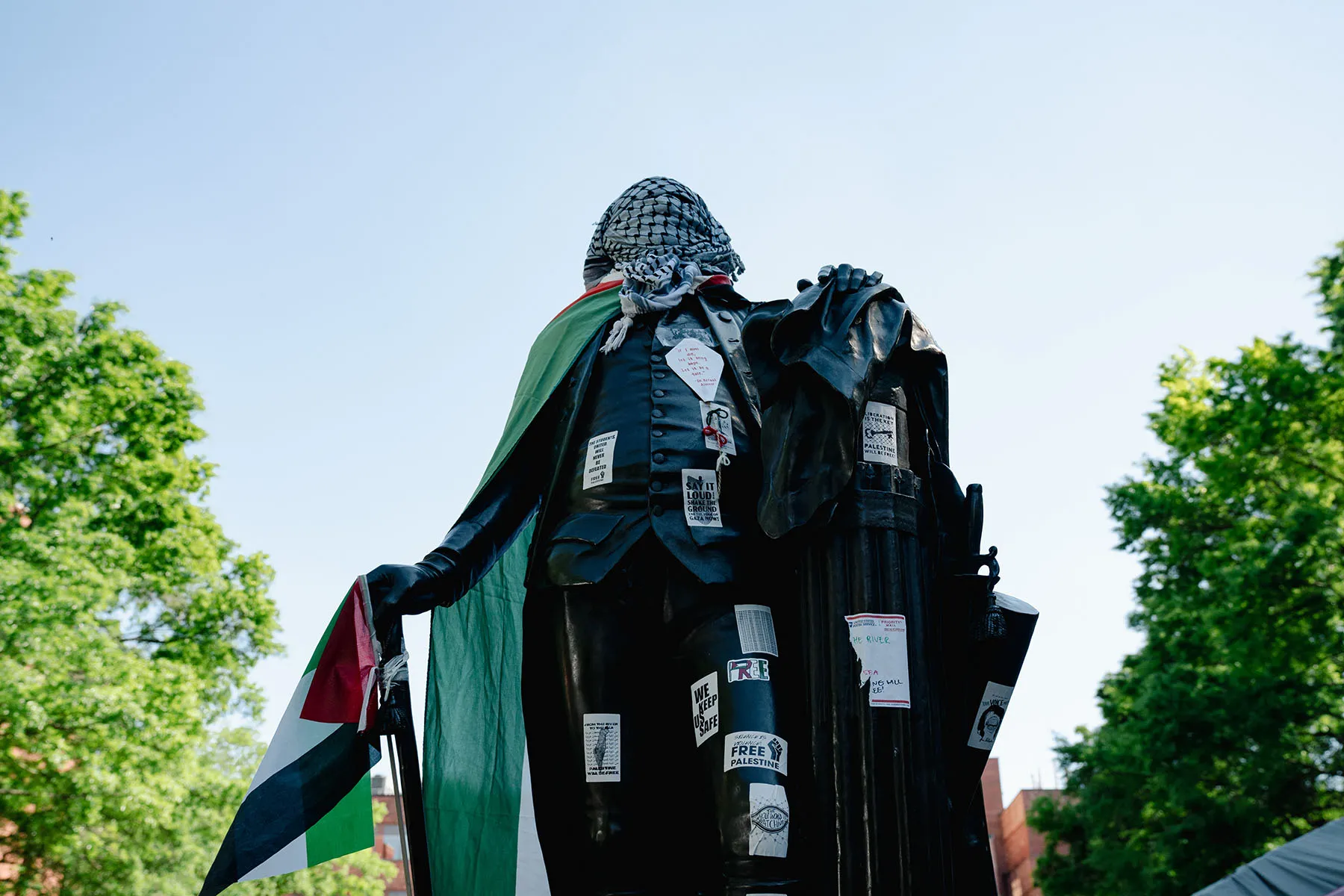
A statue of George Washington is seen wearing a keffiyeh and a Palestinian flag at University Yard on the GW campus. (Shuran Huang for The 19th)
Students from a number of D.C. campuses have set up an encampment near George Washington University (GW). A statue of the country’s first president has been draped in a Palestinian flag and a keffiyeh. Police have been nearby but kept their distance. Students within the encampment on Wednesday were studying for exams, holding teach-ins and praying.
Earlier, some Republican members of Congress showed up at the encampment to criticize the response of D.C. police, accusing them of allowing illegal protests and creating an unsafe environment for Jewish students.
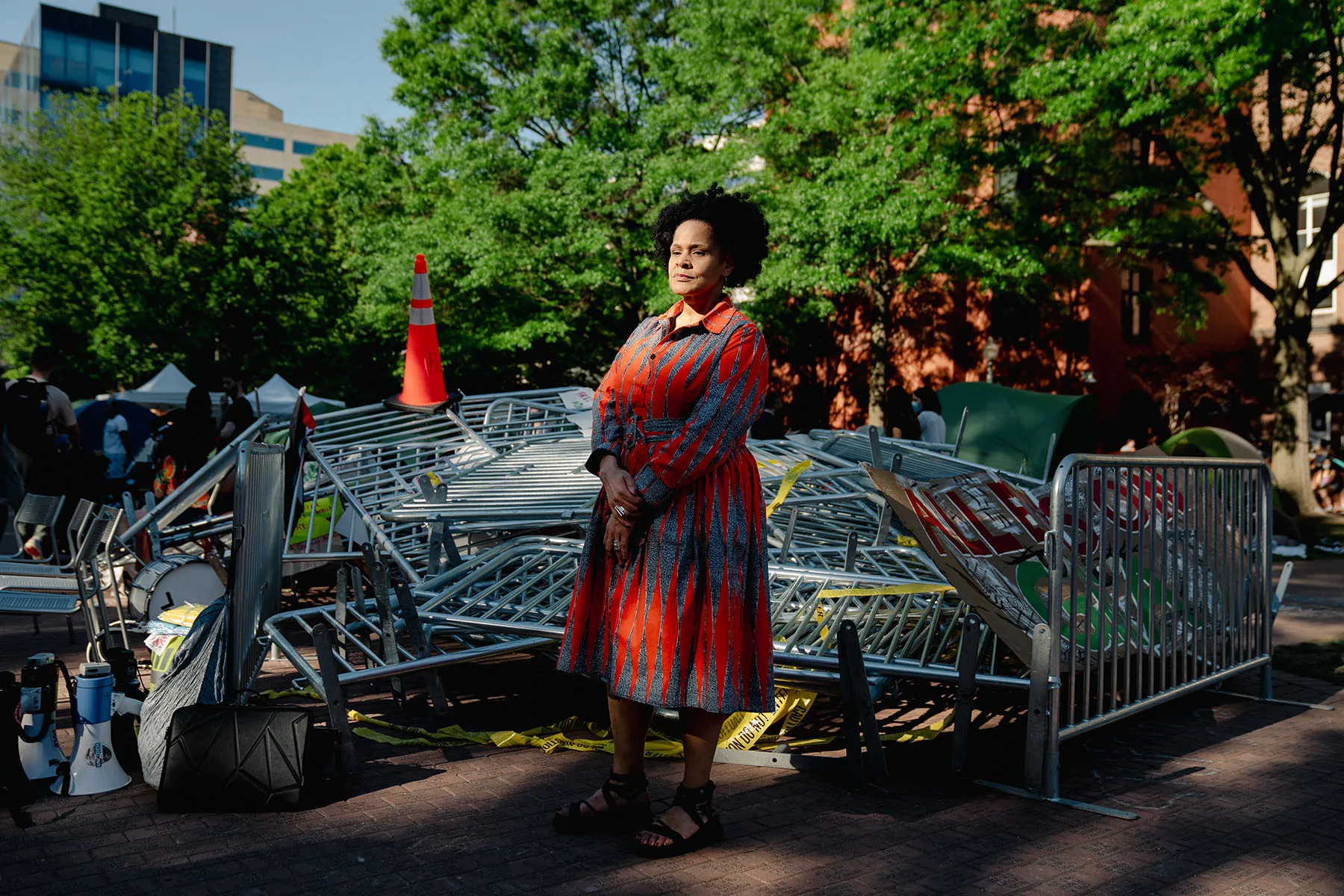
Jennifer James poses for a portrait at University Yard on the GW campus. (Shuran Huang for The 19th)
Jennifer James, an associate professor of English and Africana studies at GW, visited the encampment Wednesday afternoon and voiced her support for the students’ right to dissent. “Students are tuned in. They’re aware. They’re smart on these issues and they know how to make their voices heard. I think that’s what people should be taking away from these protests,” James said.
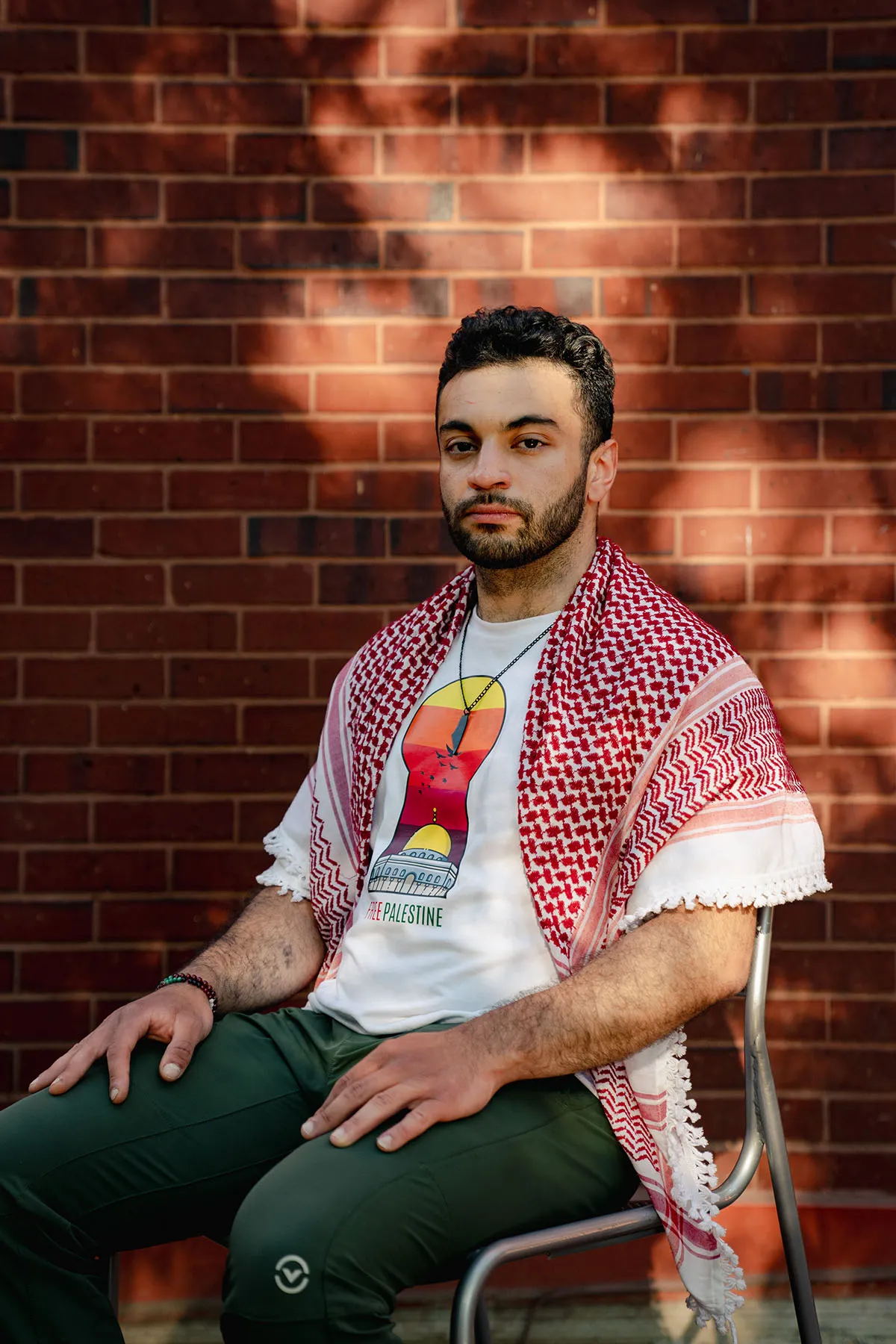
Moataz Salim poses for a portrait at University Yard on the GW campus. (Shuran Huang for The 19th)
Moataz Salim, 26, who is pursuing a doctorate of psychology, has lost more than 150 relatives in Gaza, including close cousins. His presence at the protest was deeply personal and fueled by a desire for justice and liberation.
“We’re on day 7 now, I’ve been here since minute number one,” Salim said. Despite the challenges of maintaining contact with his family in Gaza due to limited internet access, Salim describes his connection with them. “They are the most resilient people I’ve met in my life, and we get our strength from them,” he said.
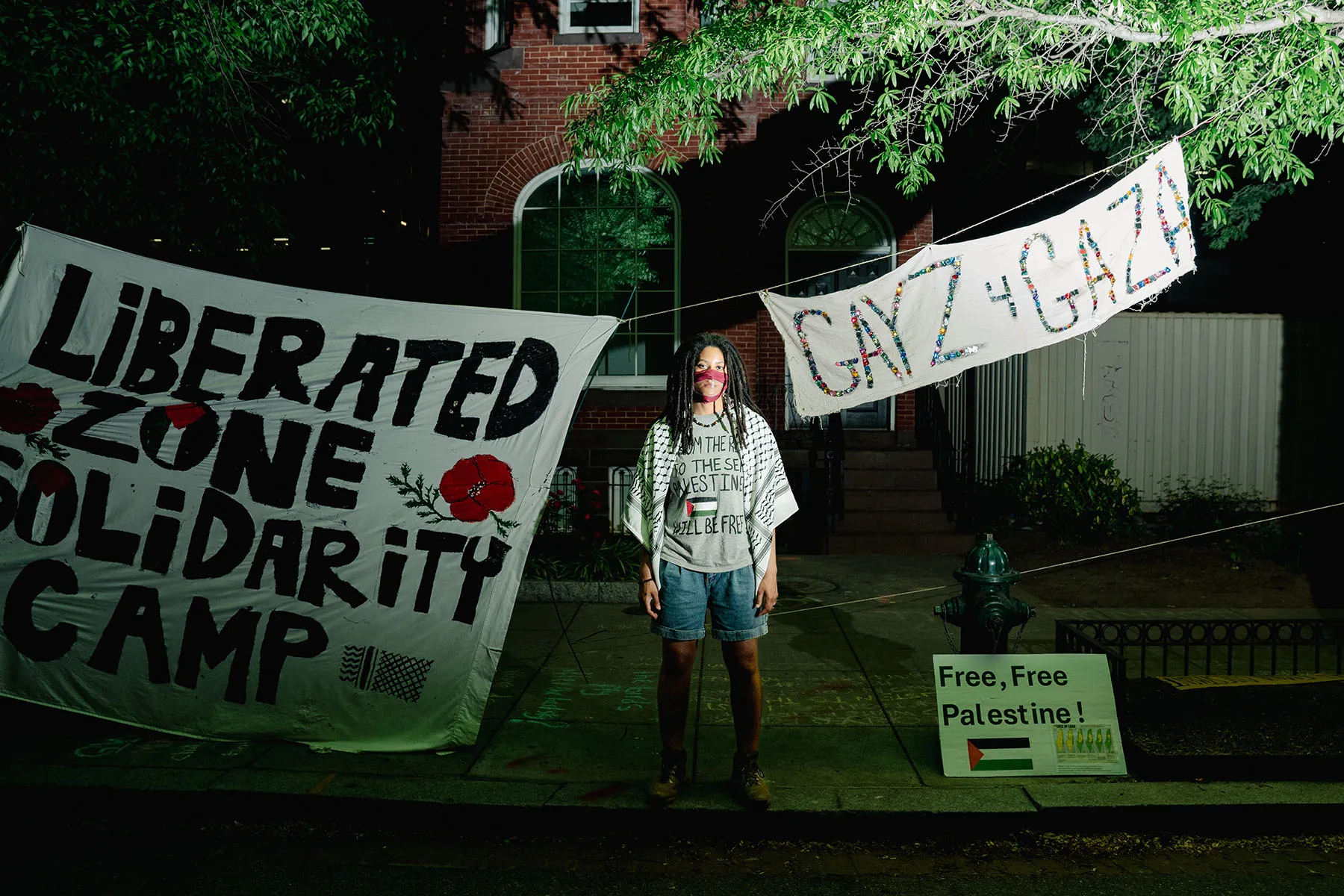
Bobbi-Angelica Morris poses for a portrait at University Yard on the GW campus. (Shuran Huang for The 19th)
Speaking through a volunteer interpreter, Bobbi-Angelica Morris, a 24-year-old student from Gallaudet University, shared their perspective on the protests and their deep-rooted beliefs. “I’m an abolitionist, which means that my foundational values are rooted in Black feminism,” they said. “My personal is political. I’m a Black American, which is tied with the prison system, mass incarceration. I have family who have experienced repeated incarceration so that’s close to my heart. I’m working daily to resist state violence and interpersonal violence.”
Morris called for universal liberation. “Free Palestine, Free Congo, Free Sudan, Free Haiti, Free Puerto Rico, Free West Papua, Free Turtle Island. Free all colonized people. None of us are free until all of us are free.”
![]()
ATLANTA
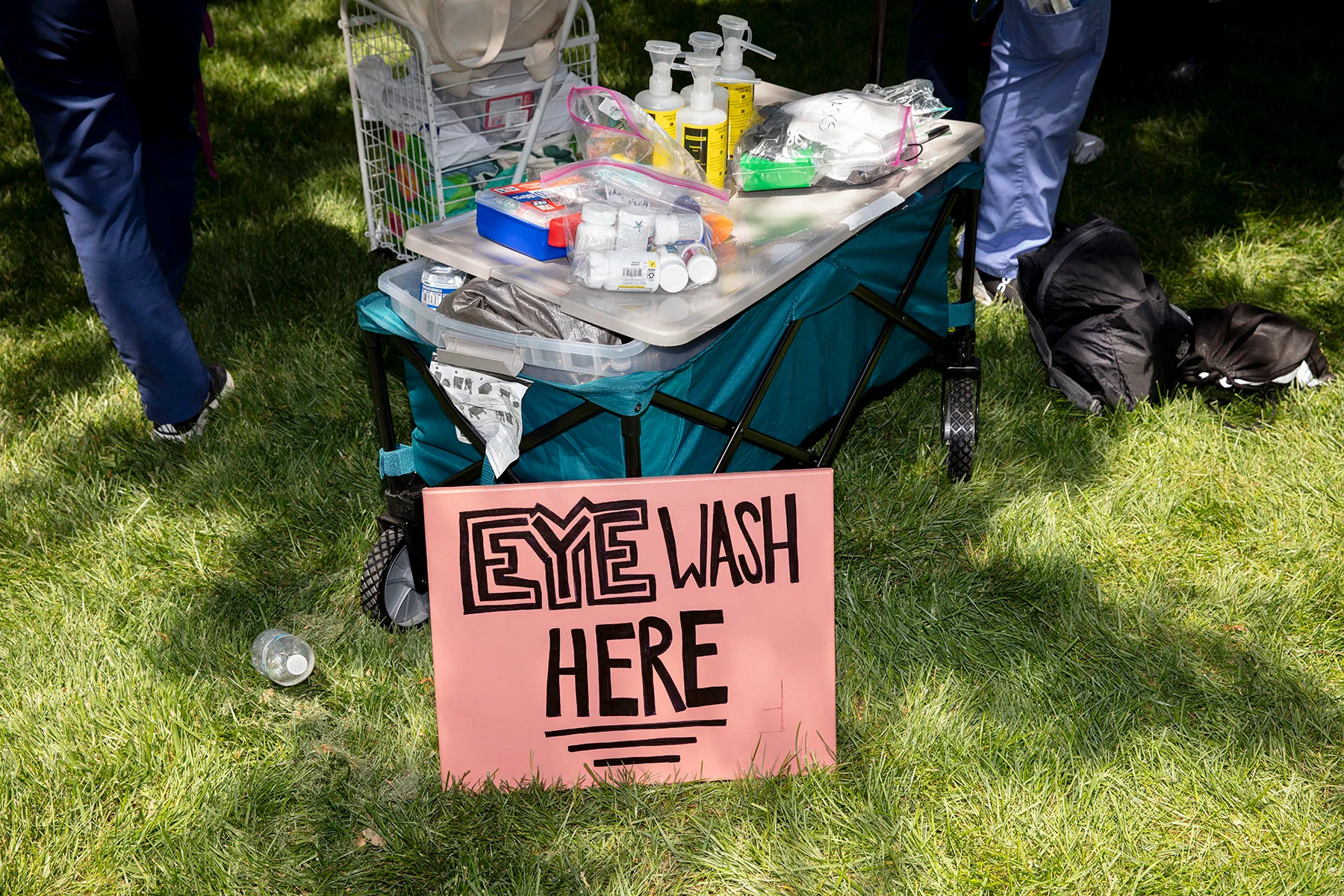
Emory medical school students set up an eye wash and first aid station on the quad at Emory during a Pro-Palestine rally on campus. (Kendrick Brinson for The 19th)
Similarly, in Atlanta, students from other colleges have joined Emory University students on their campus, many of whom have signs that call out university President Gregory Fenves after more than two dozen people were arrested during protests last week. On Wednesday, a group of protesters marched through Emory’s campus, with medical students nearby with cold water and an eye wash station in case of tear gas.
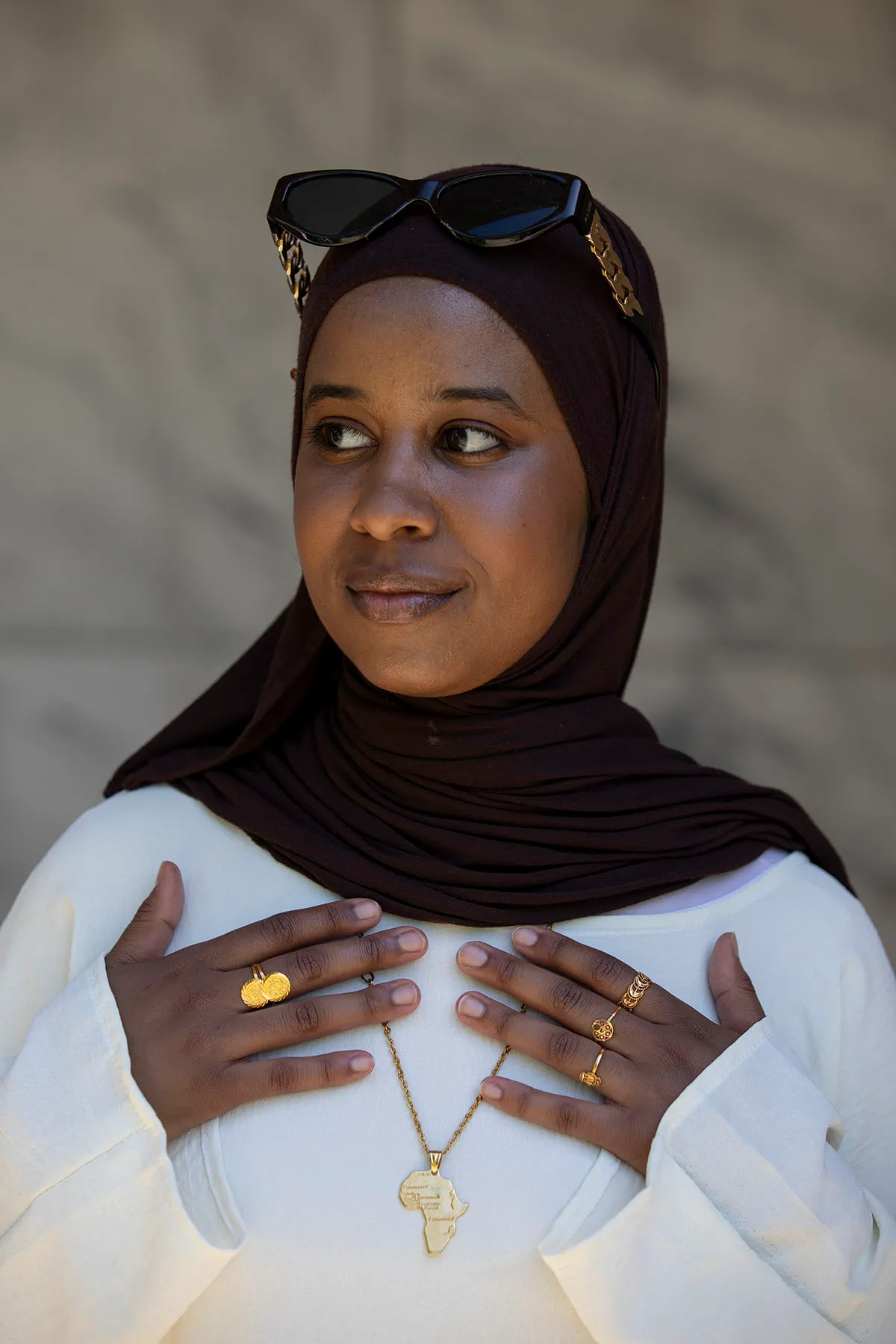
Maysam Elghazal poses for a portrait at a Pro-Palestine rally on the Emory campus. (Kendrick Brinson for The 19th)
Maysam Elghazali, a sophomore at Emory and a member of Emory Students for Justice in Palestine, led chants during the march. “I’m out here today because I am devastated and ashamed by Emory University’s funding of genocide and apartheid,” she said.
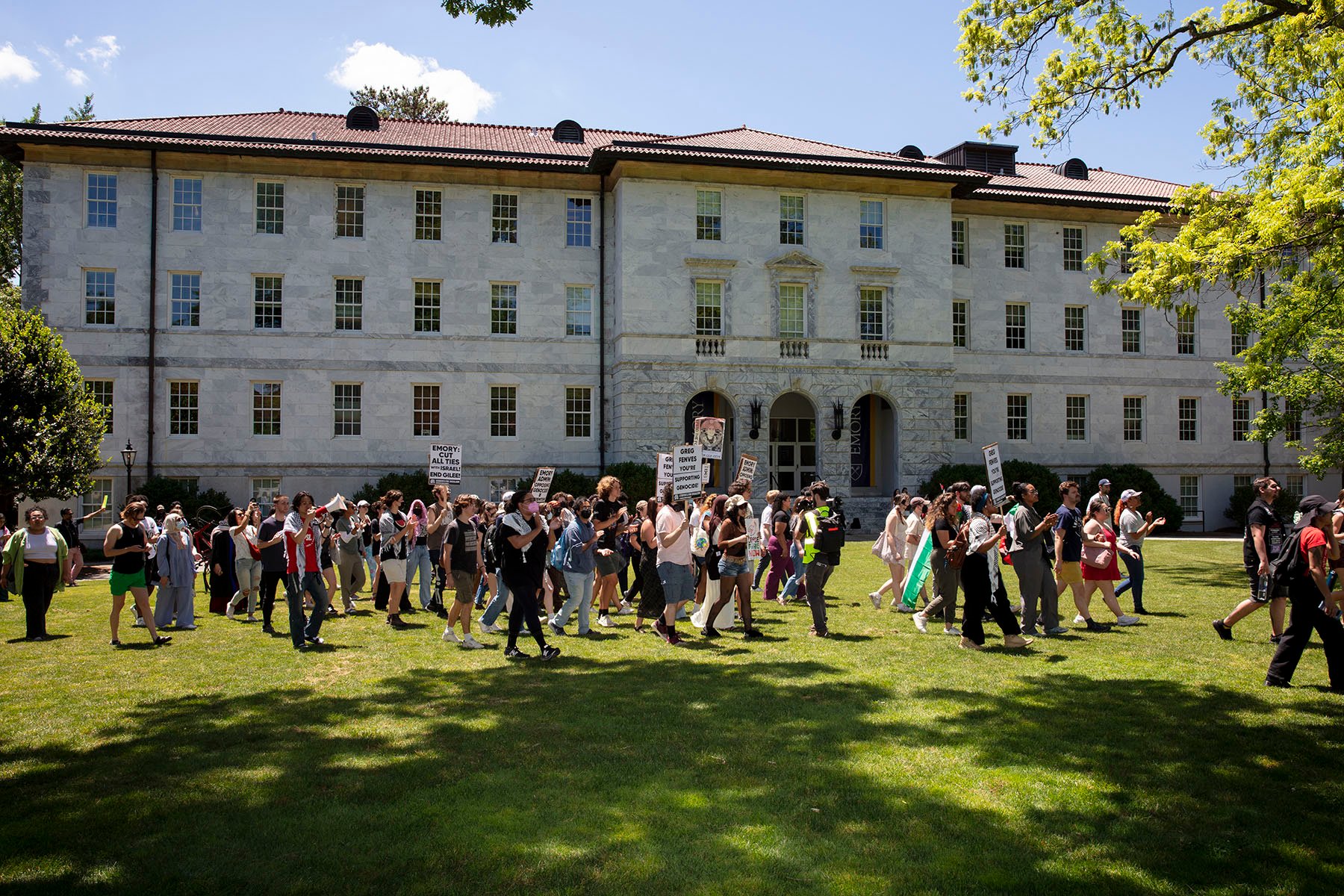
Emory students and community members march to the quad at Emory while chanting during a Pro-Palestine rally on campus. (Kendrick Brinson for The 19th)
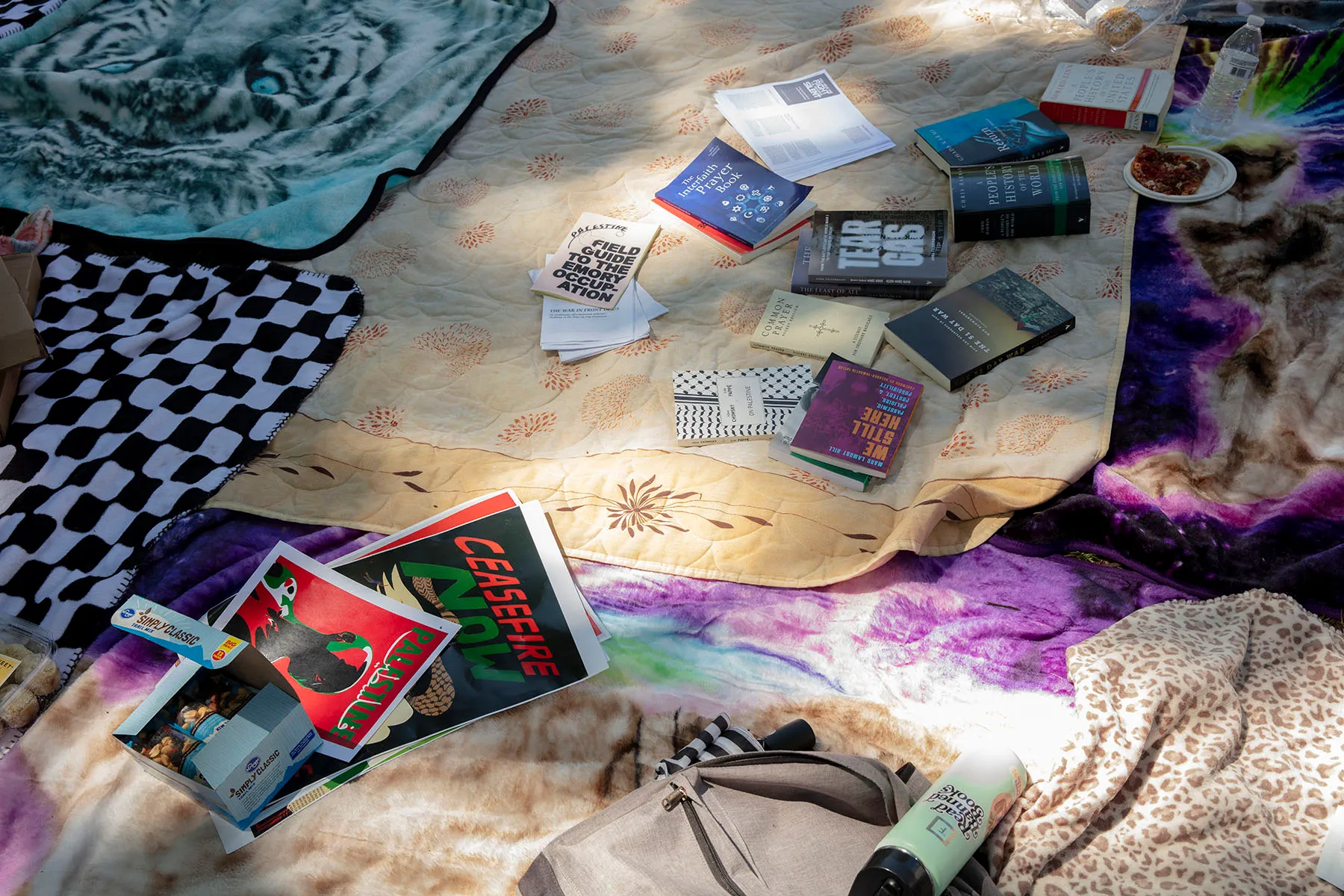
Food and books offered to students during a Pro-Palestine rally on the Emory Quad. (Kendrick Brinson for The 19th)
David Hunt, a 20-year-old student at Gwinnett Technical College, said he wanted to be “a voice for change.”
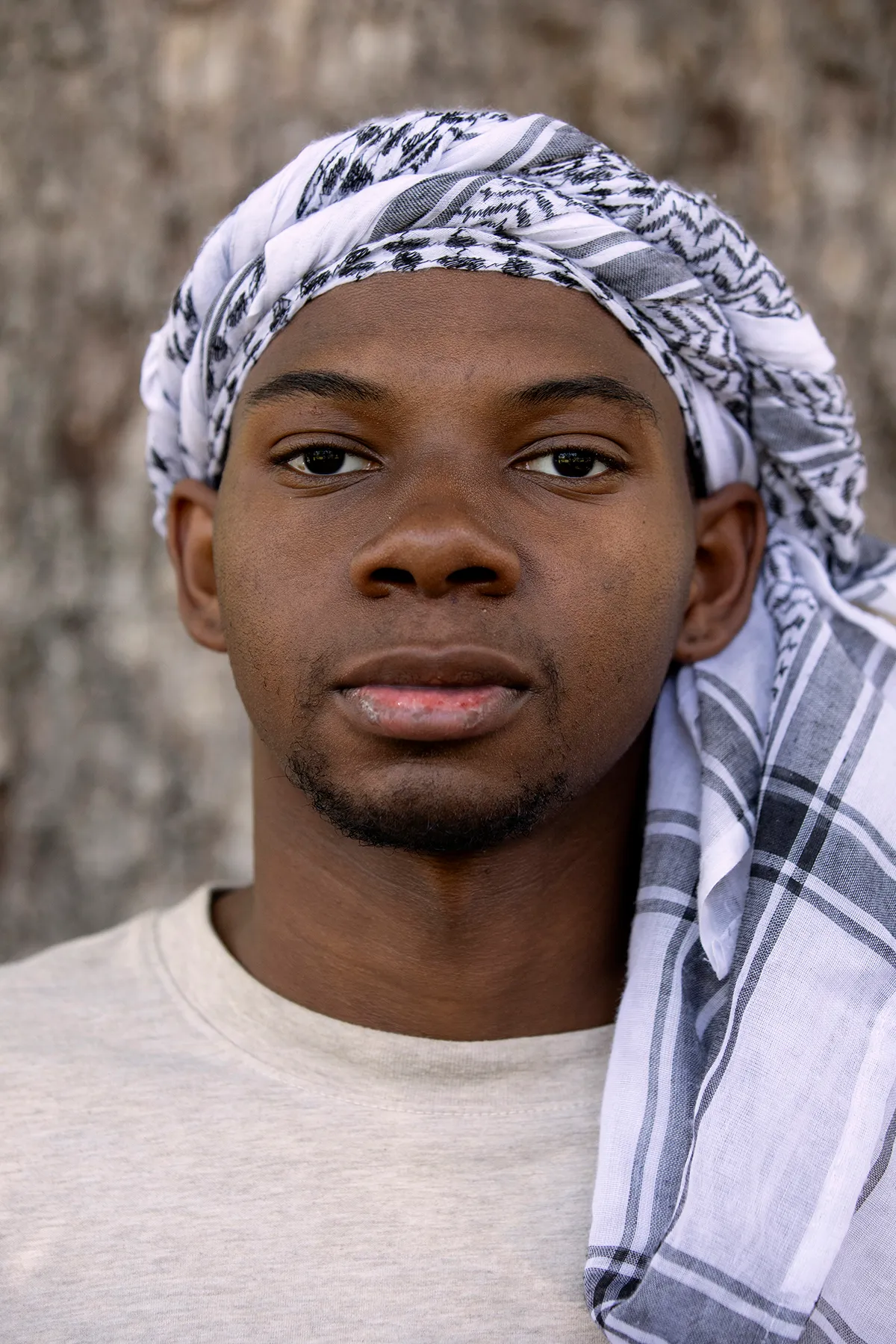
David Hunt poses for a portrait at a Pro-Palestine rally on the Emory campus. (Kendrick Brinson for The 19th)
“I feel a strong sense of duty to help those in need,” he said. “I’ve studied history and seen the injustices committed by Israel. I’ve witnessed the personal impact of these wrongdoings.”
![]()
NEW YORK
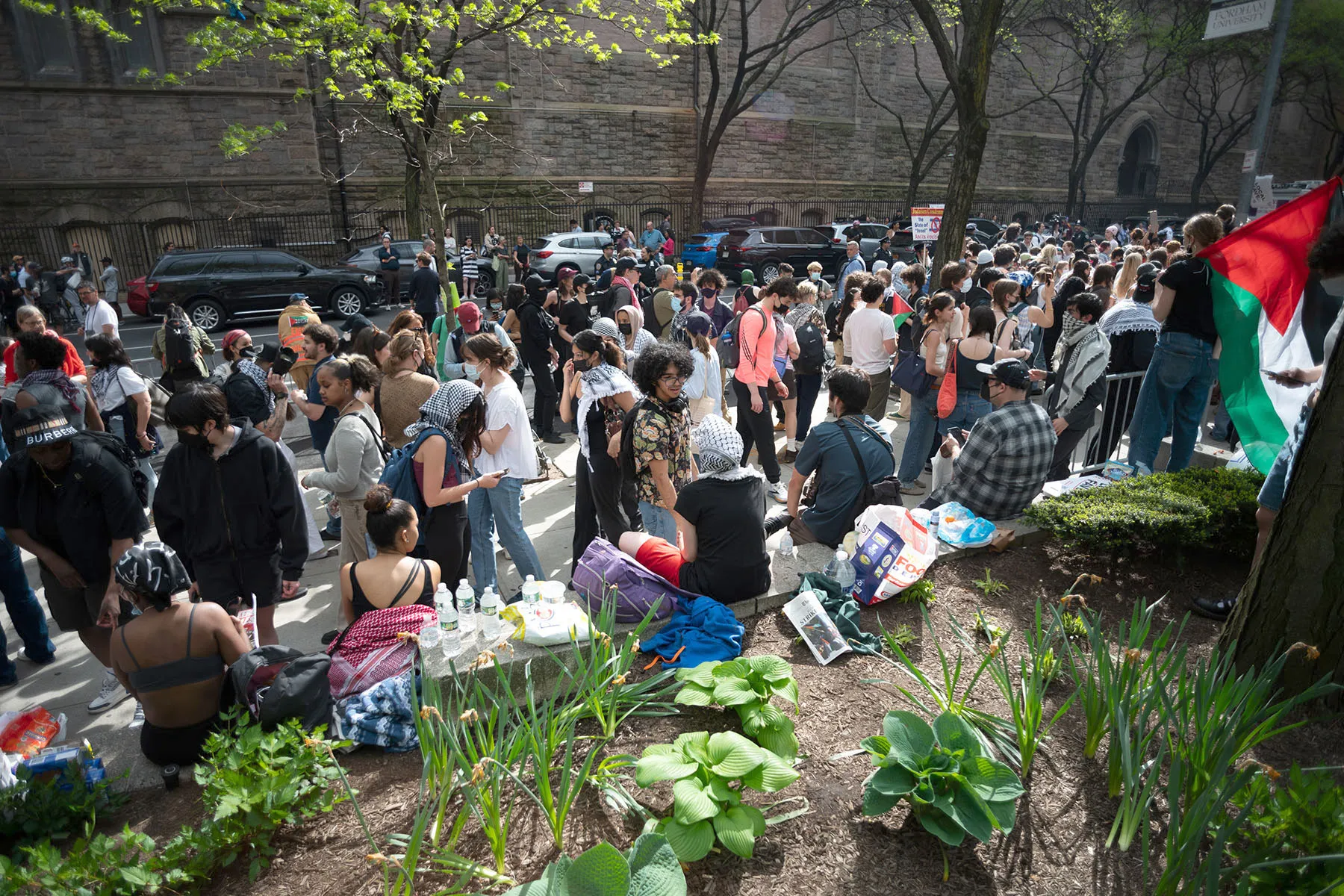
Crowds gather outside the Lincoln Center Campus of Fordham University. (Fiona Veronique for The 19th)
Columbia University has been a focal point for major clashes and arrests, drawing national attention. Following the clearance of the Columbia University and City University of New York (CUNY) encampments by police Tuesday night, students congregated at Fordham University. Despite a heavy police presence, students and community members arrived with trays of sandwiches and water bottles, sharing them among the protesters.
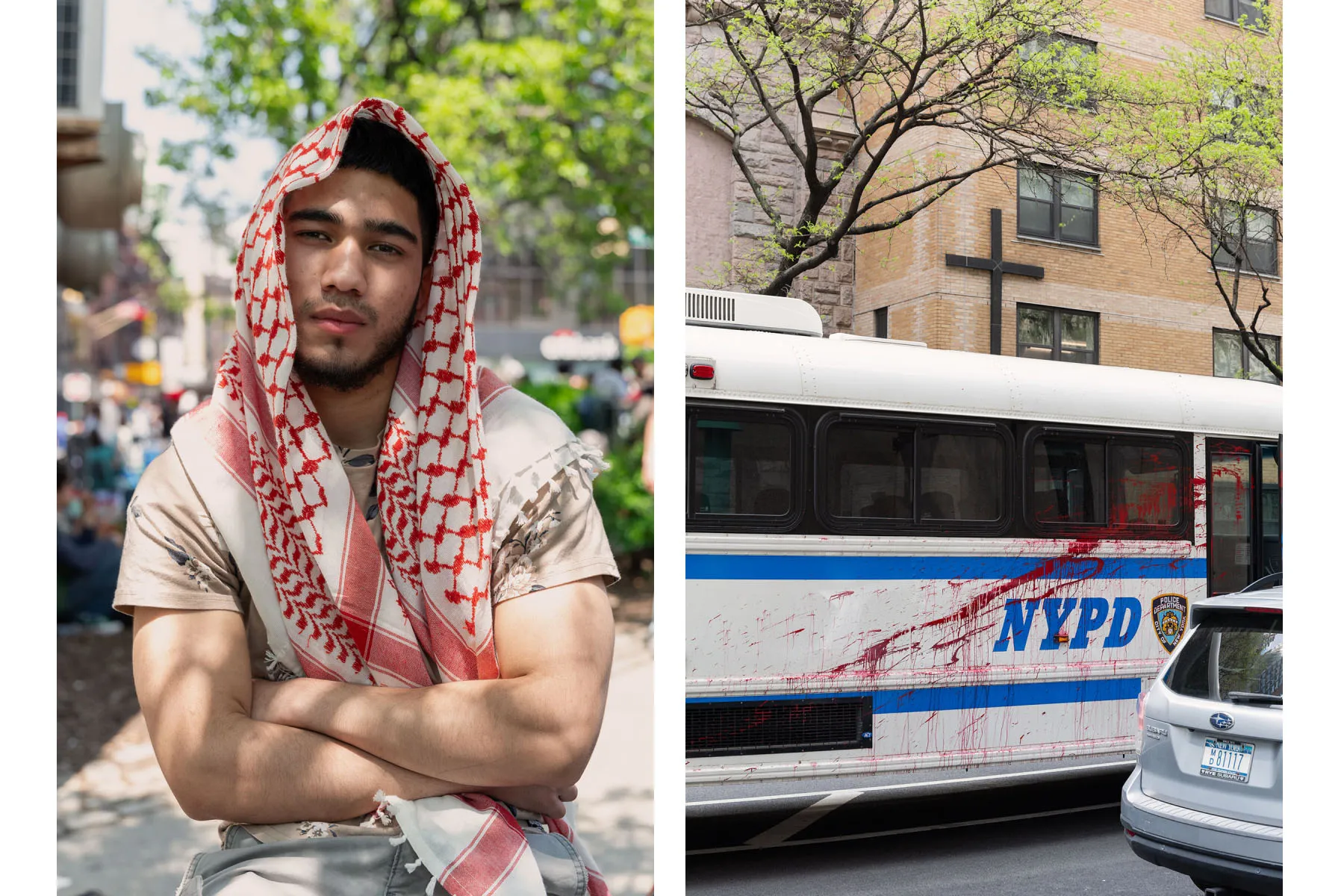
Left: A student poses for a portrait at a meeting place for protesters in Chinatown. Right: An NYPD bus is splattered in blood-like red paint outside of the Lowenstein building at the Lincoln Center Campus of Fordham University. (Fiona Veronique for The 19th)
Students also set up support stations near 1 Police Plaza in Chinatown to assist the students detained after Tuesday night’s arrests. At these stations, some people gather to share food, while others seek medical attention for wounds inflicted by police rubber bullets.
Warren, a 23-year-old graduate student at Columbia University, has been deeply involved in the movement for a cease-fire, participating in actions throughout the city. Warren emphasized the importance of protecting students’ right to protest. However, they noted that the movement’s focus should remain on supporting Gaza and highlighting the death toll, rather than shifting attention solely to student protests, police brutality or the politics of free speech.
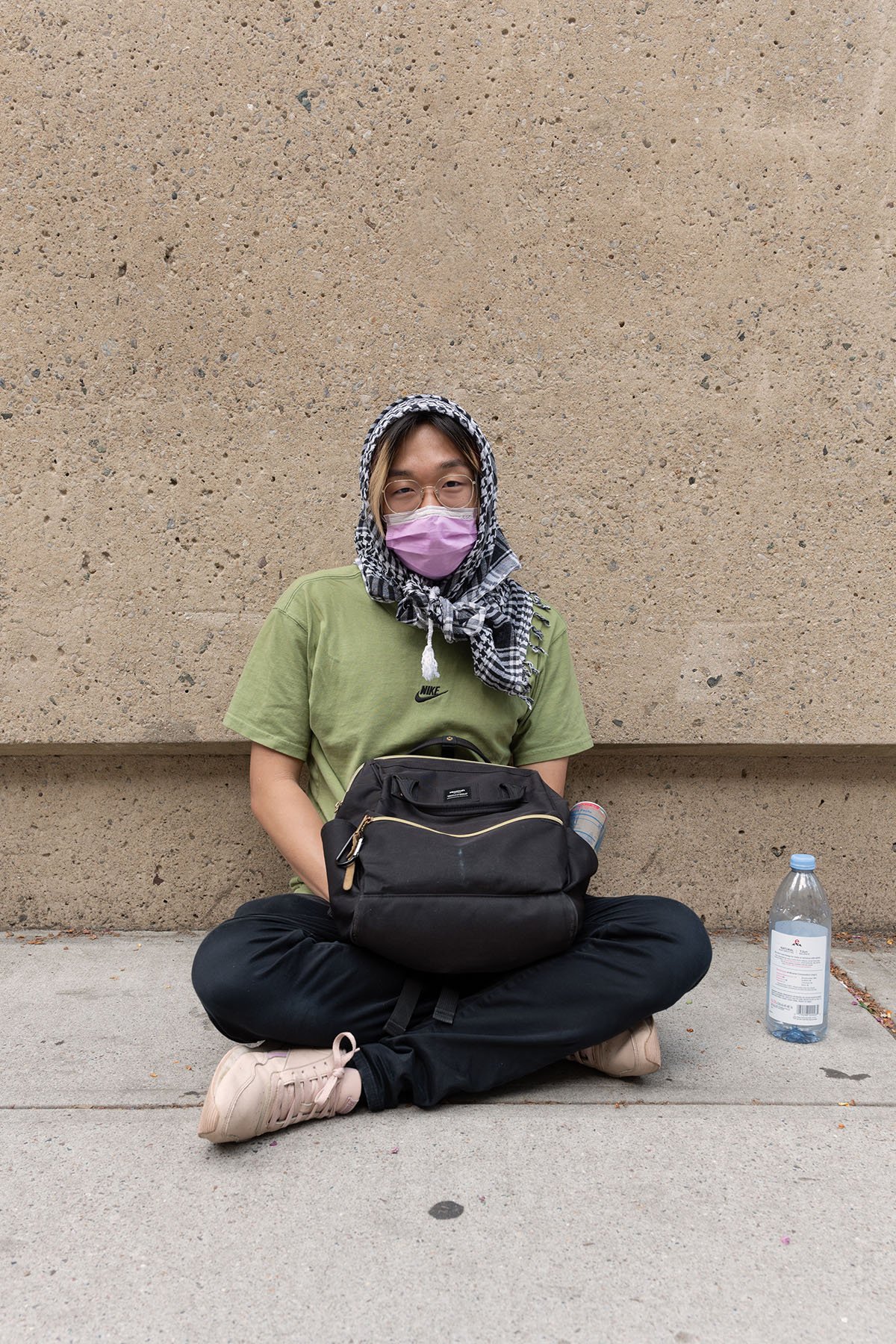
Warren rests against the Lowenstein Building at the Lincoln Center Campus of Fordham University. (Fiona Veronique for The 19th)
Despite the challenges, Warren finds inspiration in the widespread nature of these movements and the organizational efforts of students. “It’s really inspiring to see how these movements have spread throughout the country and how students organize,” they said.
![]()
LOS ANGELES
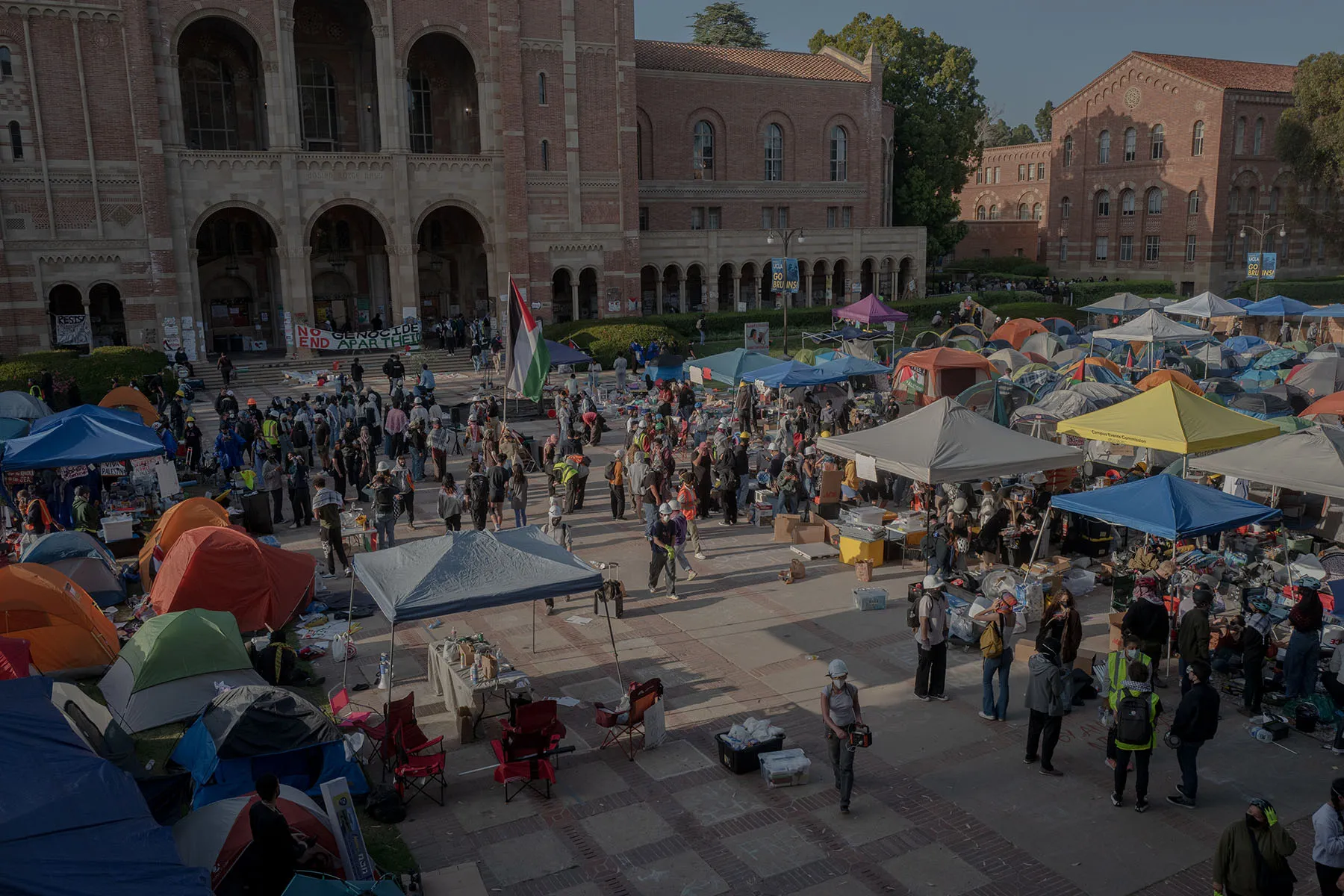
A view of the UCLA encampment (September Dawn Bottoms for The 19th)
On Wednesday, the UCLA encampment was dealing with the aftermath of a violent attack that came Tuesday night from counter-protesters. The scene was peaceful, with students offering food and support to protesters even as a helicopter swirled above.
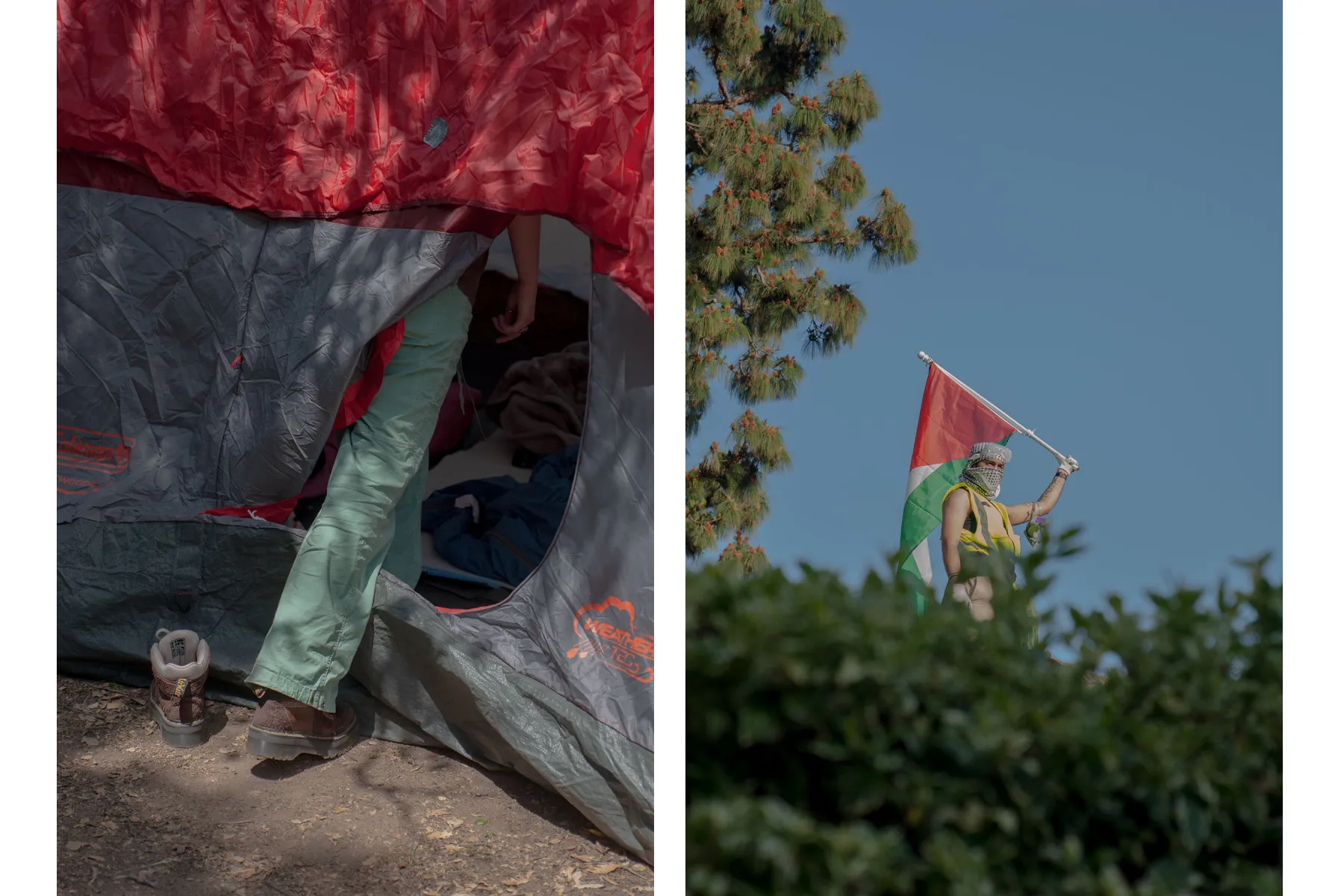
Left: A student steps into their tent at the Occidental College encampment. Right: A protester waves a Palestinian flag at UCLA. (September Dawn Bottoms for The 19th)
At Occidental, dozens of tents were set up on the quad, around a central area where organizers gather to discuss what they’re learned and what they are planning to do for the day. They have food, water and coffee set up, and faculty have established a place for students to come for help with papers or finals.
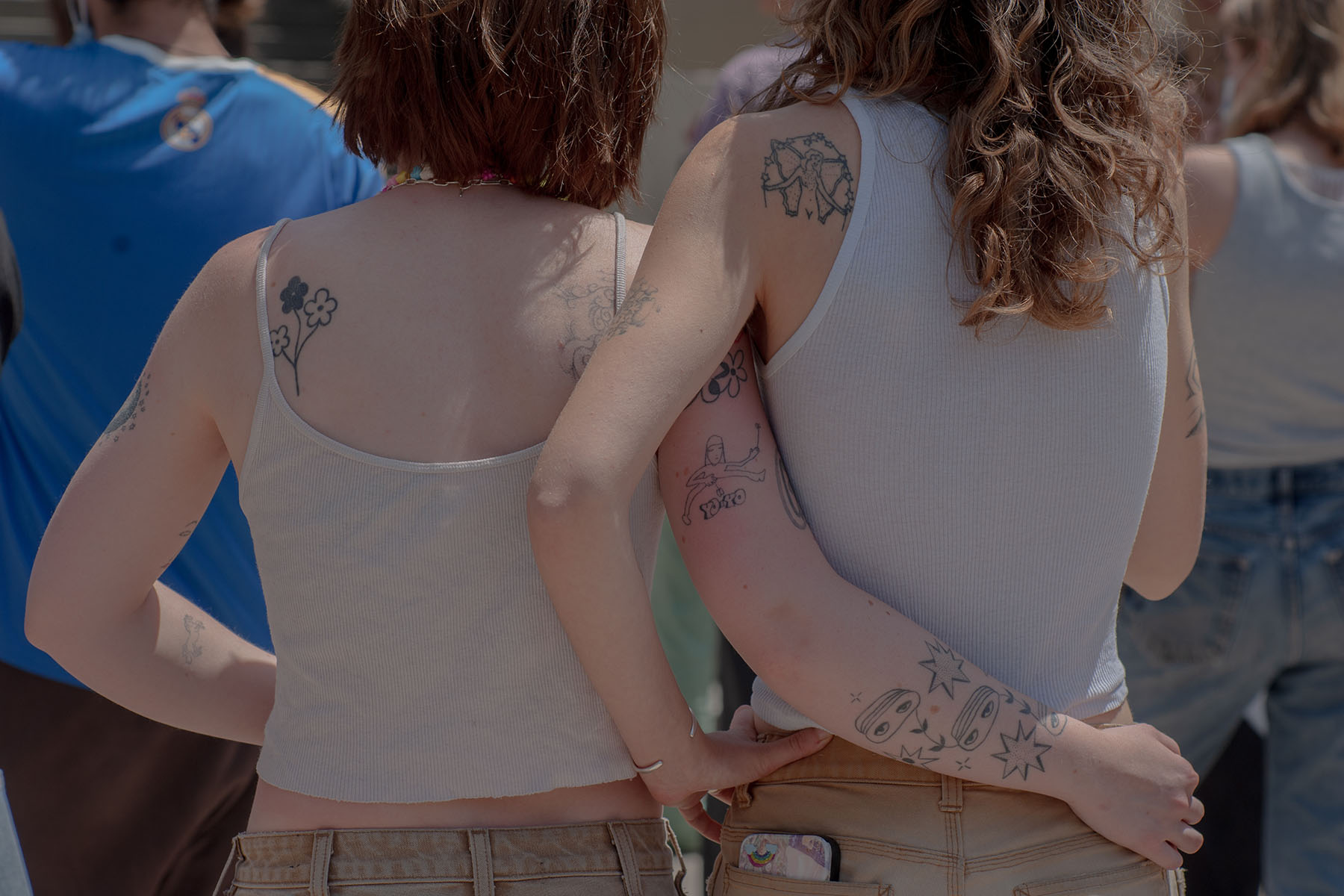
Two young woman embrace each other at a rally at Occidental College. (September Dawn Bottoms for The 19th)
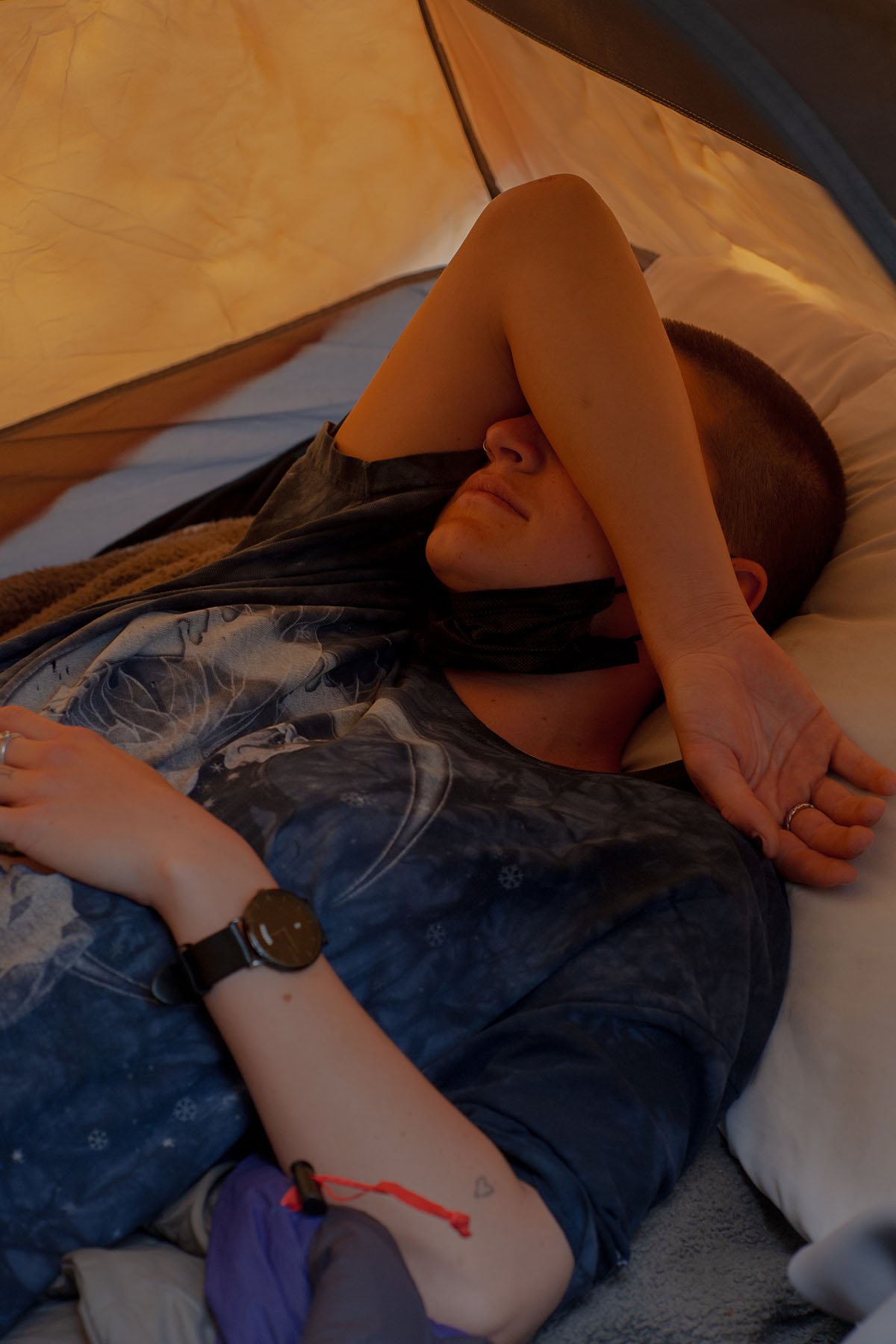
Boots rests in their tent at the Occidental college encampment. (September Dawn Bottoms for The 19th)
Boots, who preferred not to use their last name, is graduating in 2024 from Occidental College and is part of the security team at the encampment. They’re a poet who got involved in the movement after writing and realizing that they, and what felt like everyone around them, were stuck in a “paralyzed rage.” They needed a way to check their cynicism and get to work. “I think that we read a lot of critical theory at this school, we do a lot of anti-colonialist work and study post-structuralism so I don’t know a lot of people who believe in this kind of facade of progressivism and democracy,” said Boots. “We really need to be here right now.”
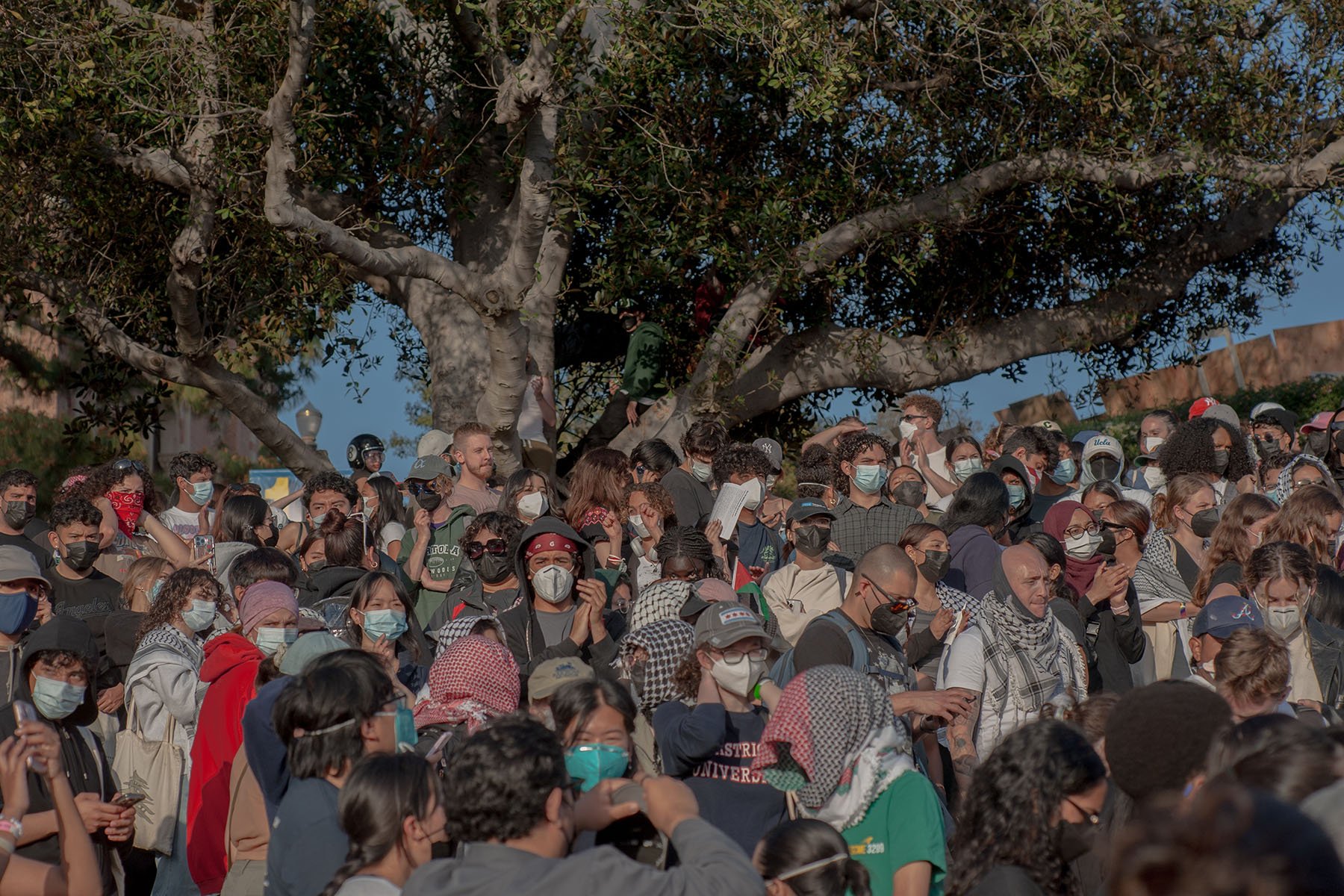
Students wait before the start of a press conference at UCLA. (September Dawn Bottoms for The 19th)
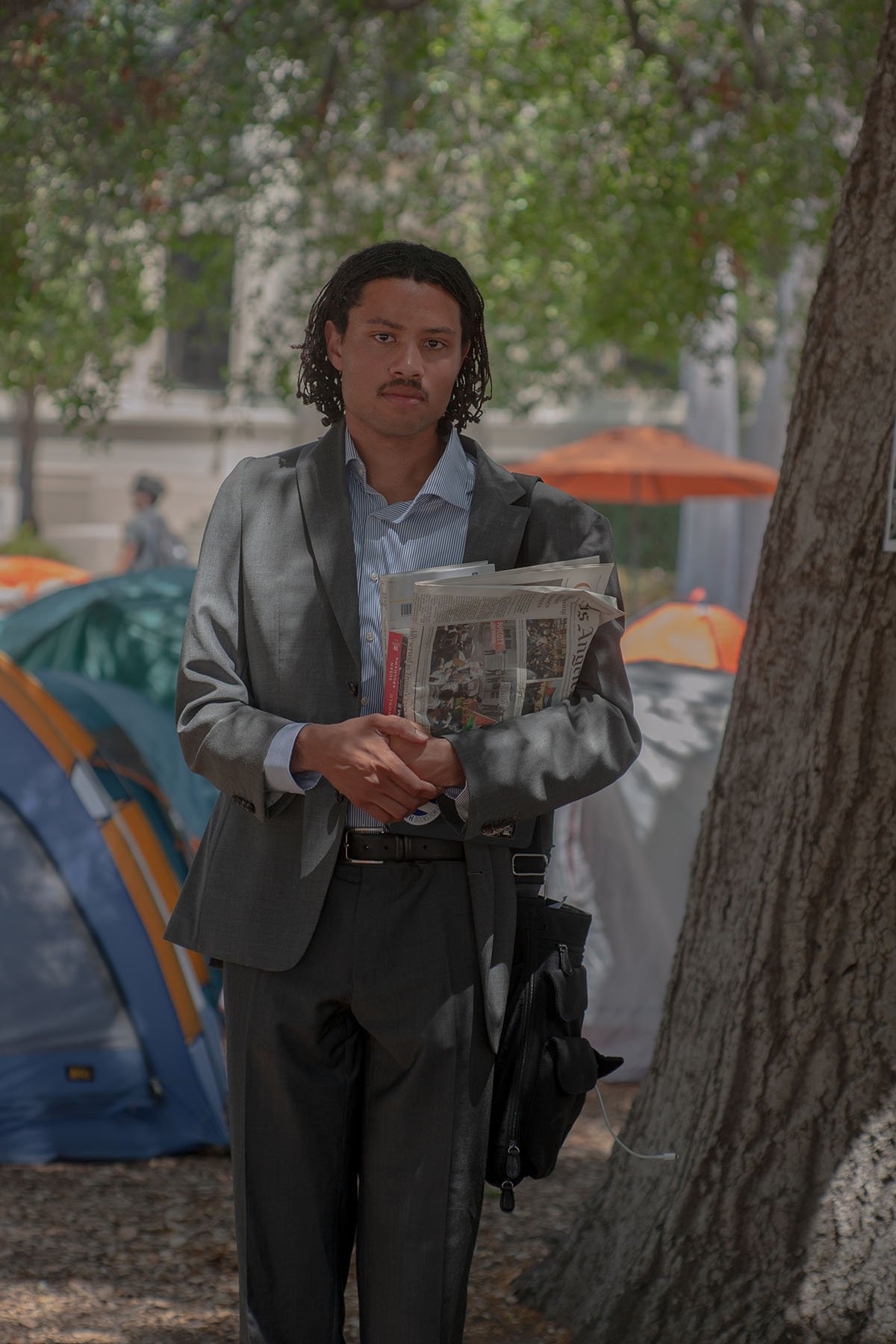
Matthew Vickers poses for a portrait at the Occidental College encampment. (September Dawn Bottoms for The 19th)
Matthew Vickers is a third year student at Occidental majoring in diplomacy and foreign affairs. “We want to join in the national call, for local context, we want to escalate our efforts with administration, but most importantly we are showing solidarity with the people of Palestine and the people of Gaza who are facing genocidal conditions from the Israeli invasion. We want to stand up and call out our complicity here in the United States against converging interests around imperialism,” said Vickers.
Overnight, in the early Thursday morning hours, police would order the hundreds of people gathered at UCLA to disperse and arrest dozens of protesters as they dismantled the encampment.
***
September Dawn Bottoms, Shuran Huang, Kendrick Brison and Fiona Veronique contributed to this report.
The 19th — named after the 19th amendment to the U.S. Constitution — is an independent, nonprofit newsroom reporting on gender, politics and policy. Their goal is to empower women and LGBTQ+ people — particularly those from underrepresented communities — with the information, resources and tools they need to be equal participants in our democracy. The 19th is a trusted source for contextualizing the news. Subscribe to their daily newsletter.


